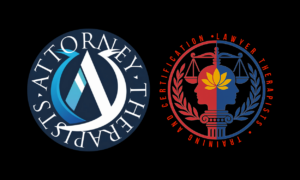The modern practice of law is defined by relentless deadlines, billable-hour quotas, and outcome-driven mandates. While these demands are often viewed through the lens of professional identity and institutional culture, emerging research in clinical psychology and neuroscience reveals that such time-bound, deadline-driven work exerts profound effects on the human nervous system. Specifically, persistent exposure to high-stakes temporal pressures habituates the attorney’s brain and body to sustained elevations of stress-related neurotransmitters and hormones. Over time, this habituation fosters a maladaptive dependency on stress states, undermines the attorney’s capacity to disengage from goal-directed behavior, and corrodes both psychological well-being and physical health.
I. Neurobiological Foundations of Stress Habituation
A. The Stress Response and the Hypothalamic-Pituitary-Adrenal (HPA) Axis
Neuroscientific research demonstrates that acute stress activates the HPA axis, releasing cortisol and catecholamines (e.g., adrenaline, noradrenaline, dopamine). These hormones heighten arousal, sharpen attention, and facilitate rapid problem-solving—an adaptive advantage in survival contexts. Yet, when stress is chronic and inextricable from daily work, as it often is for attorneys, the nervous system recalibrates its baseline to accommodate sustained elevations of these hormones.
B. Habituation and Reward Pathways
Studies in clinical psychology and affective neuroscience have shown that repeated activation of dopaminergic pathways during stress-induced goal pursuit conditions the brain to associate high-arousal states with reward. In other words, the act of meeting a deadline becomes reinforcing not merely because of professional achievement, but because the nervous system has been trained to “crave” the neurochemical surge itself. This habituation undermines the brain’s capacity to down-regulate into states of rest, reflection, or stillness.
II. The Legal Profession as a Laboratory of Chronic Stress
A. Time-Bound Pressures in Legal Practice
Attorneys, particularly in large firms and litigation practices, exist in a perpetual state of countdown: motions must be filed, clients must be advised under crisis conditions, and every six-minute billing increment is monetized. The very architecture of the profession requires continuous engagement with high-stakes deadlines. This fosters the perfect conditions for the entrenchment of stress hormone habituation.
B. The Adverse Relationship to Stillness
As attorneys unconsciously work to maintain neurochemical states associated with deadline-driven arousal, stillness comes to feel aversive rather than restorative. This aversion manifests in difficulty being present in mundane or non-instrumental aspects of life, such as sharing meals, engaging in leisure, or sustaining interpersonal connection. Thus, the attorney experiences not only occupational stress but also an existential erosion of presence.
III. Psychological and Physiological Consequences
A. Depression and Anxiety
Clinical psychology research links chronic stress habituation to elevated risks of depressive and anxiety disorders. Attorneys habituated to stress arousal frequently report anhedonia (the inability to derive pleasure from ordinary life) and persistent rumination, both of which reflect dysregulated reward processing.
B. Corrosive Physiological Impact
The chronic presence of cortisol and catecholamines exerts documented adverse effects on cardiovascular, immune, and gastrointestinal systems. Neuroscientific studies have further demonstrated stress-related hippocampal atrophy, implicating long-term cognitive impairments, including memory decline and reduced executive function—functions essential to competent legal practice.
IV. Implications for the Legal Profession
A. The Erosion of Meaningful Connection
The habituated attorney, tethered unconsciously to elevated stress hormones, finds it difficult to enter into the quiet, reciprocal exchanges necessary for intimacy, friendship, and community. The profession’s cultural valorization of ceaseless productivity thus comes at the cost of profound disconnection.
B. Structural and Cultural Reforms
These findings call for systemic reevaluation of professional norms. If the legal profession continues to valorize time-bound pressure as the crucible of excellence, it risks perpetuating a model of lawyering that is neurobiologically corrosive. Bar associations, law firms, and legal educators must begin to treat stress habituation not merely as an individual wellness issue but as an institutional hazard with ethical implications for the capacity to practice law effectively.
V. Conclusion
Attorneys do not merely endure stress—they neurochemically adapt to it. This adaptation, while superficially facilitating productivity, exacts hidden costs: erosion of presence, breakdown of relationships, heightened risk of depression, and physiological wear that shortens healthspan. To ignore these realities is to imperil both the attorney and the clients they serve. As neuroscience and clinical psychology make increasingly clear, the profession must confront an uncomfortable truth: in habituating its practitioners to perpetual arousal, law itself is manufacturing the very psychological injuries it then relies on those practitioners to navigate.









